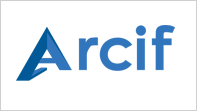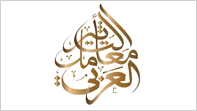Classroom Code- switching in Arabic Context: A Review Study
DOI:
https://doi.org/10.51984/johs.v22i4.2798Keywords:
Classroom Code-switching, First Language, Systematic review, Second Language, Arabic contextAbstract
Solid theoretical grounds for First Language (L1) use in Second Language (L2) classes have been established over the past three decades. Most of these arguments are based on the assumption that L1 use can enhance L2 teaching and acquisition. Recently, several studies have been conducted to support these theoretical arguments in different contexts, including the Arabic context, where Arabic is the mother tongue of teachers and learners. The present study aims for an in-depth review of the research on classroom code-switching (CS) in the Arabic context during the past three decades. It attempts to identify the most common research areas on classroom CS in the Arabic context. The systematic review approach was adopted for this study. The conclusion drawn for the present review revealed that research on classroom CS in the Arabic context needs to be more extensive and covers only some geographical contexts. The results also revealed that the research on classroom CS in the Arabic context focused on three common research areas. These areas are "Perceptions of Classroom Participants OF Classroom CS", "Functions of Teachers' and Students' CS", and "Reasons for Classroom CS". However, more research needs to be done to measure the effects of classroom CS on learning and teaching English as a foreign language.
Downloads
Downloads
Published
Issue
Section
Categories
License
Journal of Humanities Policy on Intellectual Property and Plagiarism
1. Commitment to Intellectual Property and Ethics
The Journal of Humanities (JOHS) is fully committed to respecting intellectual property rights and aims to protect the originality and authentic work of authors who submit their manuscripts for publication. The journal takes a firm stand against articles that contain any form of plagiarism and emphasizes the need for all researchers to adhere to the highest ethical standards in scientific research.
2. Anti-Plagiarism Policy
The journal considers plagiarism a serious violation of academic ethics. Therefore, authors must ensure that their work is original and not plagiarized, and that any use of external sources is properly cited and documented according to correct academic standards.
-
Actions Taken: In the event that any plagiarism or academic theft is discovered in a submitted article, the editorial board will contact the author to request a formal explanation within a maximum period of two weeks from the date of notification.
-
Investigation and Decision: After receiving the explanation, the article will be referred to the journal's specialized committees, which will investigate the matter and take the necessary measures, which may include the permanent rejection of the article and the imposition of disciplinary actions.
3. Publication License and Author Rights
The journal adopts the Creative Commons license type Attribution-NonCommercial-NoDerivs 4.0 International (CC BY-NC-ND 4.0), which allows for the following:
-
Attribution: Users are entitled to cite the content published in the journal and use it in their work, provided that the original source and author are clearly credited.
-
Non-Commercial: The published content may not be used for any commercial purpose.
-
NoDerivs: It is not permitted to make any modifications, distortions, or to build derivative works from the published content.
Under this license, authors are required to complete an exclusive license agreement for the journal. Authors retain the rights to their research data and may reuse and share their work for scientific purposes with proper citation.







